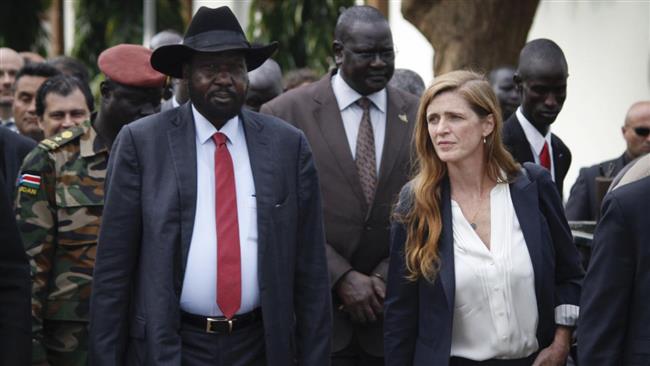-
Tips for becoming a good boxer - November 6, 2020
-
7 expert tips for making your hens night a memorable one - November 6, 2020
-
5 reasons to host your Christmas party on a cruise boat - November 6, 2020
-
What to do when you’re charged with a crime - November 6, 2020
-
Should you get one or multiple dogs? Here’s all you need to know - November 3, 2020
-
A Guide: How to Build Your Very Own Magic Mirror - February 14, 2019
-
Our Top Inspirational Baseball Stars - November 24, 2018
-
Five Tech Tools That Will Help You Turn Your Blog into a Business - November 24, 2018
-
How to Indulge on Vacation without Expanding Your Waist - November 9, 2018
-
5 Strategies for Businesses to Appeal to Today’s Increasingly Mobile-Crazed Customers - November 9, 2018
South Sudan agrees to deployment of additional United Nations peacekeepers
Monday’s statement challenges the agreement reached by the visiting U.N. Security Council, which has threatened an arms embargo if turbulent South Sudan doesn’t comply.
Advertisement
Kiir had opposed the deployment of additional troops as breaching national sovereignty. The U.N. already has 12,000 peacekeepers in the country, and South Sudan has been wary of giving it more authority.
To improve the security situation, the Transitional Government of National Unity gave its consent to the deployment, as part of UNMISS, of the Regional Protection Force recently authorized by the United Nations Security Council Resolution 2304.
Both sides to the conflict have been accused of obstructing peacekeeping operations, while the peacekeepers have been accused of not doing enough to protect civilians from attacks and abuse.
In Addis Ababa, UN and African diplomats also discussed a proposed 4,000-strong UN protection force for South Sudan.
Lomoro said the transitional government of national unity commits to devising a plan with UNMISS by the end of September on concrete steps to remove impediments to UNMISS’s ability to implement its mandate, including reviewing procedures related to movement of UNMISS and streamlining bureaucratic processes.
Samantha Power, the U.S. envoy to the Security Council, said it was now time to implement the agreement.
“What we need to do now is move from those very important high-level commitments into working up the modalities in an operational way”, she said. “The number one obstacle for (the peacekeepers) fulfilling their mandate to this point has been the severe restrictions on their movements”.
Senegal’s ambassador to the UN, Fode Seck, said it has been hard getting enough troops pledged by regional countries to make up the force.
Hundreds were killed and thousands were displaced, while Machar, a former first vice president, fled after the outbreak of violence.
Kiir also said his rival, Machar, who fled the country after the July fighting and is now in neighboring Sudan, can’t return to the country until the next election cycle, the United Nations official and diplomat said. He is now in Khartoum and has been replaced by Taban Deng Gai.
Advertisement
He argued that the opposition forces of the SPLA-IO loyal to Machar are far more disciplined than the forces loyal to Kiir, saying this was demonstrated during the recent fighting in Juba where no opposition forces involved in the looting of civilians in the locations they briefly controlled in the capital, including Gudele area to the west.





























